May 2025 Green Labs
CU Boulder Green Labs is hiring a new FTE whose role will be to collaborate with engaged laboratory departments to open-up researcher and student access to existing campus laboratory equipment by increasing resource sharing. This position will also manage the resources (including organizing access, coordinating repairs/upkeep of equipment, promoting the availability of the resources, and training new users).
The job post (https://jobs.colorado.edu/jobs/JobDetail/?jobId=64187) is open until May 21, 2025.
We are in competition with CU Anschutz Green Labs to see which campus will earn the most points in the International Freezer Challenge!
So far only have 5 CU Boulder labs registered:
- 2 IPHY labs
- 1 Biochem Lab,
- 1 EBio Lab
- Green Labs Shared ULT freezers
Will you help us grow our numbers by registering for the Freezer Challenge? Choose “lab lead” when registering.
The three CU Boulder labs with the most points by July 1, 2025 will each receive a prize of delivered food to a lab group meeting.
Graduate Students Choosing to Include Efficiency in Research Fellowship Applications
CU Boulder Green Labs Team Leads are passionate advocates for sustainability who strive to make and impact beyond their lab. Many team leads are graduate students who help further CU Boulder Green Labs initiatives in their department and building. Some of these graduate students have included their experiences in sustainability in fellowship applications.
One such graduate student, Laurel Robbins, included research efficiency into the Broader Impacts section of her NSF GRFP* application. Laurel is a doctoral graduate student in the Biochemistry department. In her fellowship application that was awarded, she discussed how her work with Green Labs contributes to research sustainability. She states, “despite not actively studying climate change, I continue to be mindful of the enormous waste that has become normalized at many large research institutions." She also described how her research method improves the “efficiency of wet lab experiments” by first advancing understanding with computational approaches which are “more high-throughput than traditional experimental methods”.
Another doctoral graduate student, Ashley Ley in Chemistry, incorporated sustainability into her fellowship grant proposal. She says, “there are lots of things we can do to make our research more sustainable, so it’s easy to talk about those aspects of your project and incorporate them into the design.” She also stated that she is “passionate about sustainability and limiting waste in chemistry, and, often, many grants that are funded have some aspect of this.”
CU Boulder Green Labs encourages scientists to include efficiency best practices in grant proposals which can help applications stand out and demonstrate commitment to maximizing the impact of research resources and funding.
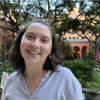
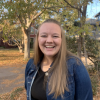
*National Science Foundation (NSF) Graduate Research Fellowships Program (GRFP)
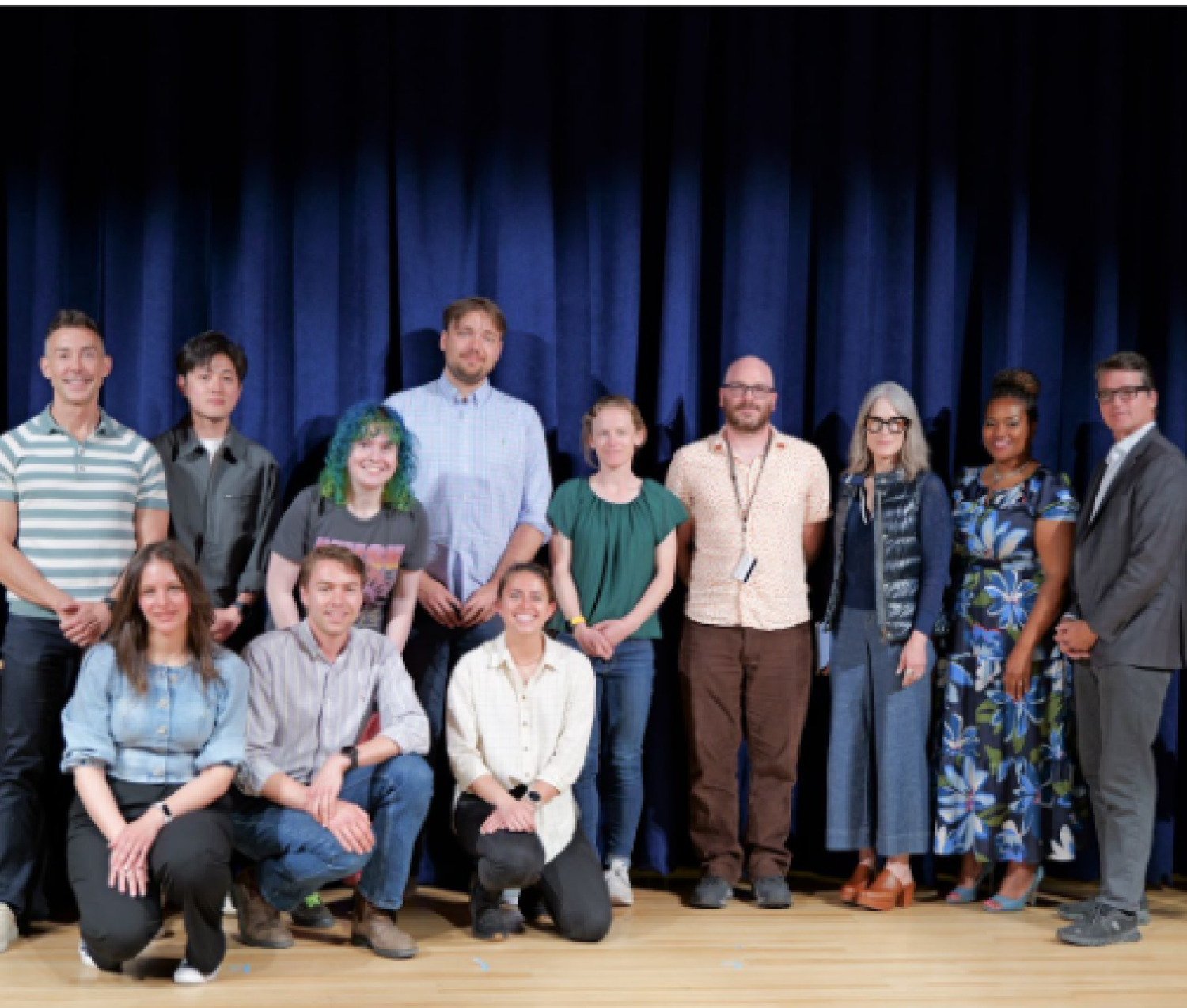
Three CU Boulder labs receive “My Green Lab Certification” - will your lab be next?
At the Sustainability Summit Award Ceremony on April 23, 2025, the CU Boulder Green Labs Programs recognized the three first campus labs to achieve certification from the nonprofit, My Green Lab.
· The Office of Animal Resources, Silver Certification
· The Burdick Lab, Silver Certification
· The Living Materials Lab, Gold Certification
These three labs participated in a CU Boulder Green Labs Program pilot of the My Green Lab Certification for campus while providing feedback to My Green Lab, who was working through an update to their certification. Micah Stoltz led the effort for the Office of Animal Resources, Megan Cooke, PhD for the Burdick Lab, and Matt Fyfe, MS for the Living Materials Labs.
In the near future, CU Boulder Green Labs plans to open up an opportunity for labs across campus to be able to obtain My Green Lab Certification. Please email greenlabs@colorado.edu if you would like to sign up to obtain My Green Lab Certification once the program is open.
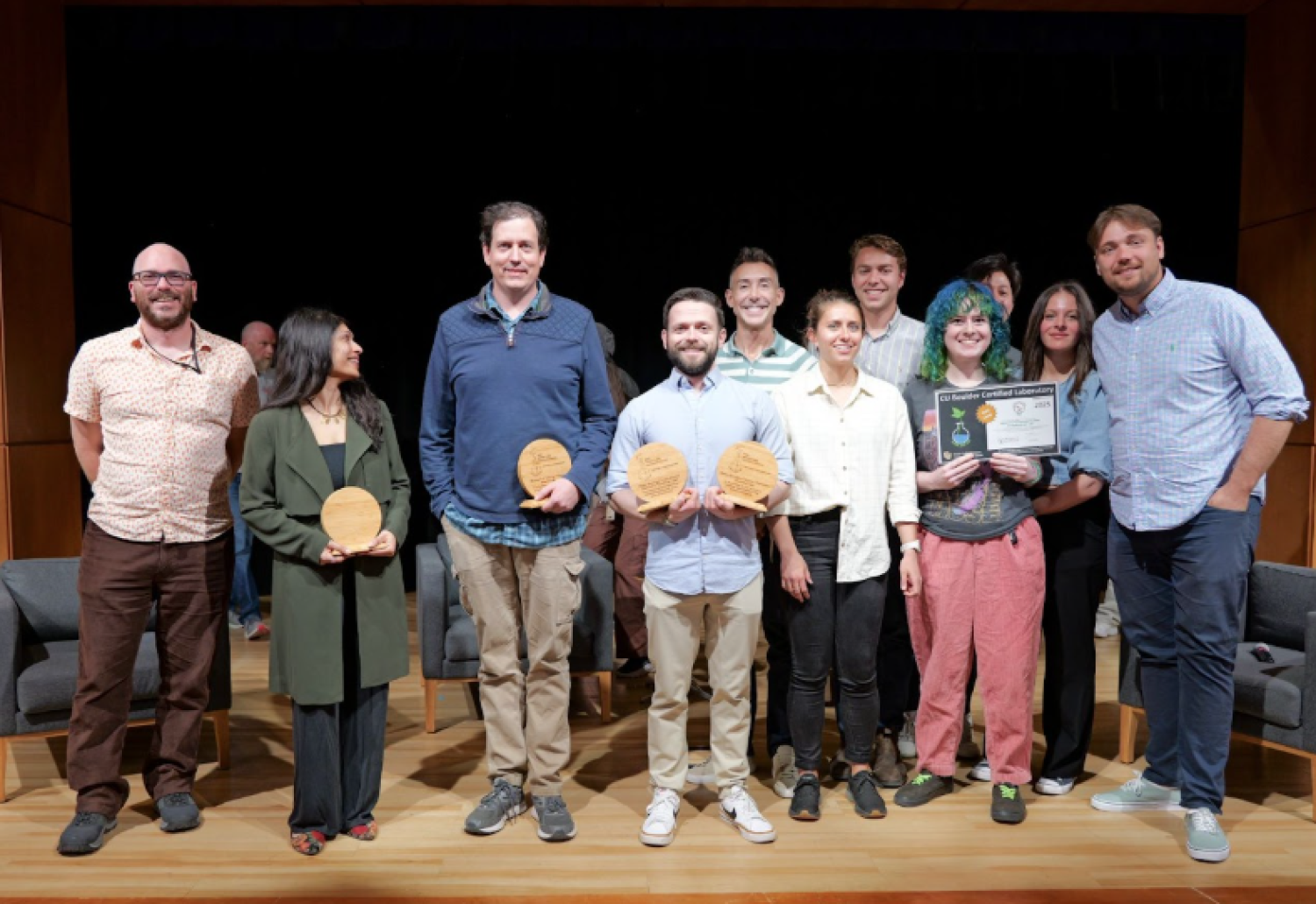
Congratulations to the 2025 CU Boulder Green Labs Award Winners!
On April 23, 2025, the CU Boulder Green Labs Program honored four awardees for their exceptional contributions to lab sustainability.
Amrita George, Individual Achievement
Amrita has been a dedicated volunteer for CU Boulder Green Labs and particularly instrumental in developing a chemical sharing program for campus labs in collaboration with Environmental Health & Safety.
Museum of Natural History Shared Lab, Departmental Award
The Museum of Natural History converted an existing lab space into a shared lab benefiting both safety and sustainability by providing researchers with unmet lab needs with a space to perform tasks with chemicals.
Water Savings in Advanced Chemistry Teaching Labs, Laboratory Achievement
The Advanced Chemistry Teaching Labs have integrated water-saving practices into student labs, highlighting the importance of resource efficiency in research and teaching these practices to the next generation of scientists.
Water Savings in Organic Chemistry Teaching Labs, Laboratory Achievement
The Organic Chemistry Teaching Labs are now saving 144,000 gallons of water per year by using re-circulators with water condensers, teaching not only undergraduate students but also graduate student teaching assistants about this practice for water savings in lab.
In May 2024, the European Molecular Biology Organization (EMBO) invited European funders, research institute representatives, and stakeholders to collaborate on a sustainability workshop in Heidelberg, Germany. This workshop addressed the important role of funders in pushing for environmentally sustainable research practices. Attendees examined the challenges, experiences, and opportunities that come with the collaborative effort of implementing sustainability goals in research and incorporating them into funding opportunities for research.
Five months following the EMBO workshop, the "Heidelberg Agreement on Environmental Sustainability in Research Funding" was published. The paper comprises a blueprint for research funders to influence sustainable research practices with 6 “points of agreement”:
- “Funders cannot risk doing nothing.”
- “Funders should set ambitious goals.”
- “Funding agencies should share a set of principles towards sustainability.”
- “Funders should highlight the importance of sustainability in their funding schemes.”
- “Funders should support the coordinated development and adoption of education, quantification and accreditation tools.”
- “Funders should involve researchers and research organizations.”
Also included are “nine recommendations for the implementation of sustainability in funding schemes.” The agreement is endorsed by 17 organizations, more than half of which are funders. It includes the perspectives of funding bodies, research institutions, and other stakeholders, and draws major insights for international research institutions and funders to examine. For many sustainability objectives to be accomplished, community spaces will be important for collaboration and sharing.
This agreement demonstrates the influence that stakeholders from governmental and nongovernmental research sectors can have when working in partnership. The expectation is that the effort could also lead to collaborative action by other research communities around the world to connect sustainable research practices to scientific funding.
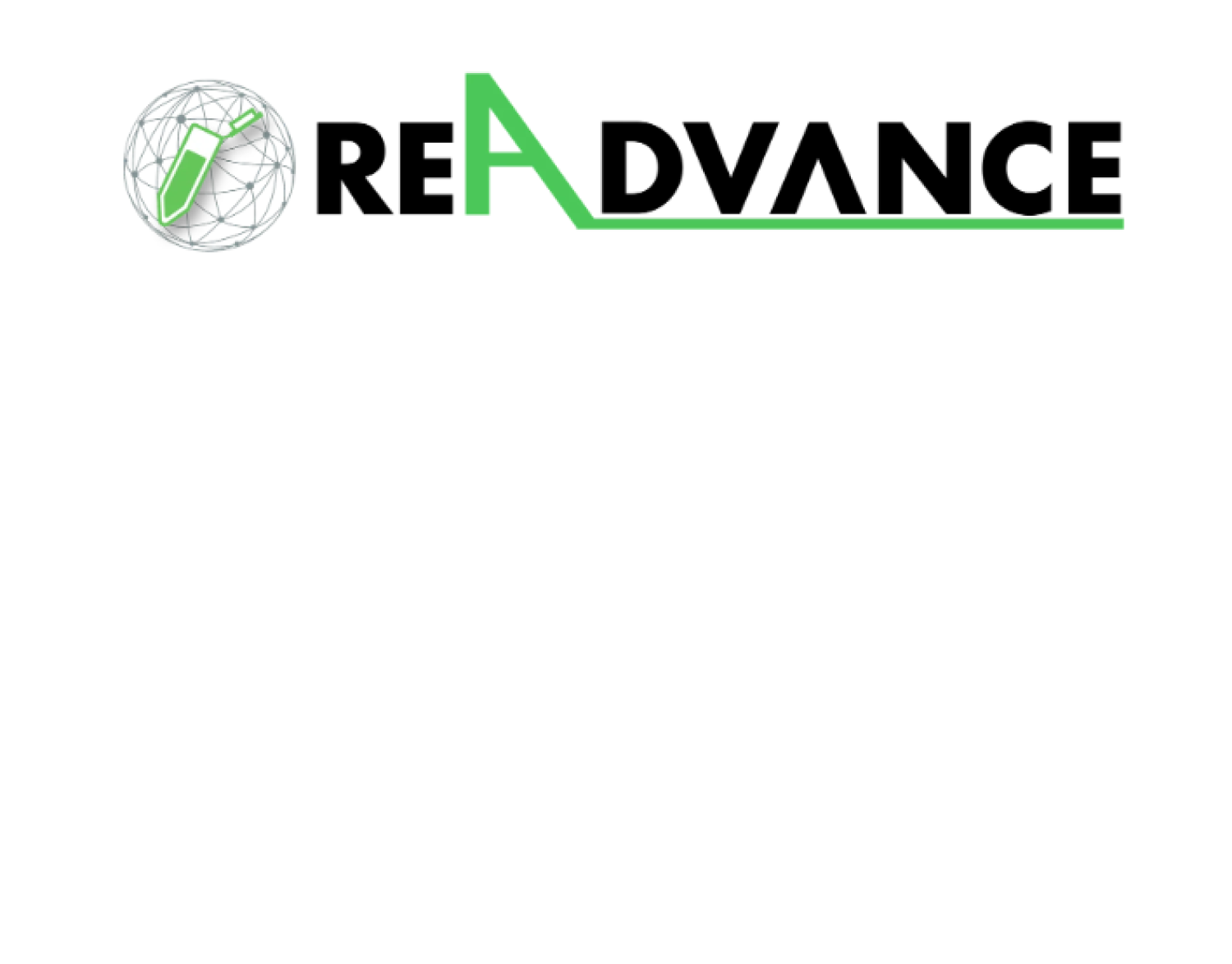
Weekly Tips to Improve Sustainability in Lab
Many scientists want good research results without the large environmental footprint, but who has the energy to reinvent lab workflows? The good news is you don’t have to anymore.
An effort, developed by Patrick Penndorf in Europe, will offer you ideas to consider by email each week. The Science Sustainability Snack— is a free email course packed with tips, success stories, and ready-to-use protocols to consider on how you can optimize experiments for sustainability. Patrick, as a fellow scientist with over four years of experience in making lab processes greener, developed this easy learning tool.
It’s meant to be an engaging guide with options for changes in your lab without the overwhelm. Try it out and see yourself, as it is entirely free to join. Click to sign up here.
Annika Ott, Green Labs Student Assistant


